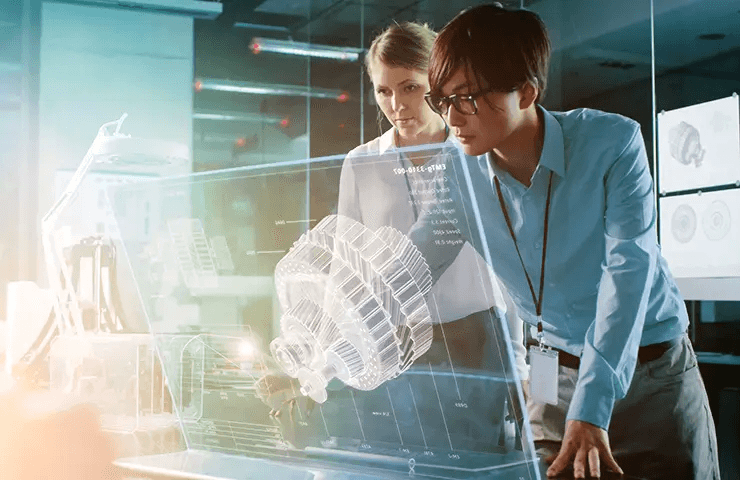
Technology plays an important role in waste management today. This is because progressive digitization is helping to substantially optimize waste collection processes and recycling activities. An example of this is the use of the IoT.
Digitization has worked its way into all areas of industrialized life. For example, it is now hard to imagine life at work or at home without smartphones. Many industrial applications are already operating digitally and in networks. The cloud plays an important role in this, as it enables data, resources, and applications to be used more connected than ever before. All of this provides opportunities for companies to become successful on a global scale.
The waste disposal industry, for instance, is facing major challenges all around the world. Due to increasing worldwide industrialization, the globalization of trade, and the associated rise in wealth, more waste is being generated today than ever before. Shrinking packaging sizes, increasingly complex packaging, and particularly functional composite packaging are all significant factors. As a result, the work of disposal companies is becoming increasingly extensive, complicated, and expensive.
Increasing competition
At the same time, competition between waste disposal companies is increasing, meaning that the need for competitive equipment in waste disposal operations goes beyond IT. The demands placed on firms and local authorities to ensure that waste is recycled properly are growing drastically as a result. The requirements stipulated by public authorities are also becoming increasingly extensive and the natural pressure from competition is creating a need for improved data quality and better insights into waste streams during operations.
The waste hierarchy, which was established many years ago, is now being rigorously put into practice, and a circular economy has already become a reality in many areas. In an increasingly networked industry, this means that any disposal which may be necessary at a later date needs to be taken into account in the initial design, and then carried out accordingly. This applies to cars, for example, as it is necessary to address the use and recycling potential of composite materials during the design process. The reason for this is obvious: Composite materials are difficult to separate and therefore less recyclable than single-origin materials.
Including disposal in the development process
This issue also applies to buildings, as plans need to include all necessary information for subsequent demolition and provide guidance for disposal companies with regard to the use of materials and potentially hazardous substances. Producers of plastic packaging are also involved with their commitment to preventing the disposal of plastic waste in the sea. Industries, such as metal, glass or paper production, which already collect and recycle valuable materials to control and ensure their own supply of raw materials, are also affected.
The digitized world of work enables companies and public authorities within this environment to provide increasingly better services for their customers and society. Mobile devices that are directly connected to the central ERP system ensure seamless communication between the head office and the vehicle. This means all orders can be easily transferred and flexibly adapted to any changed circumstances. Direct feedback from the vehicles then enables quick responses and therefore has a direct impact on processes.
Better decisions thanks to linked data
This is where technologies such as predictive maintenance come into play. This involves combining the experience of numerous users of machines, devices, and vehicles to create maintenance proposals, which means the provision of spare parts and repair or maintenance resources can become proactive – in other words, action is taken before an incident actually occurs. Power BI enables data from different areas to be collected, linked, evaluated, and displayed. This means decisions can be made faster and more effectively. The Internet of Things (IoT), on the other hand, creates links between hardware and software.
For example, dumpsters can report the level of trash they are holding. Waste disposal orders can be created in the ERP system, and emptying routes can be planned efficiently using an optimization solution, thereby ensuring the optimized use of all resources. Direct communication with end customers and business partners via web platforms also enables the reversal of order entry. For example, customers can book containers for disposal activities directly and waste disposal companies can find, confirm, and process these booked orders. Billing then takes place centrally again, undetected in the background, via a connecting ERP system.
Starting with the right partner
There are numerous innovative options and business models available today for companies that want to seize the opportunities of digitization and develop new solutions with their partners. COSMO CONSULT is a partner in the disposal industry that makes digitization become reality, using leading technology and expert consulting. Many customers and partners are working together to make the most of these new opportunities and to implement them successfully in the market.
More about the topic
Find out more about digitization in our blog series “10 tips for successful digitization”!
Read now
Keywords
More similar blogposts:
Found what you were looking for?
Start your intelligent search now



